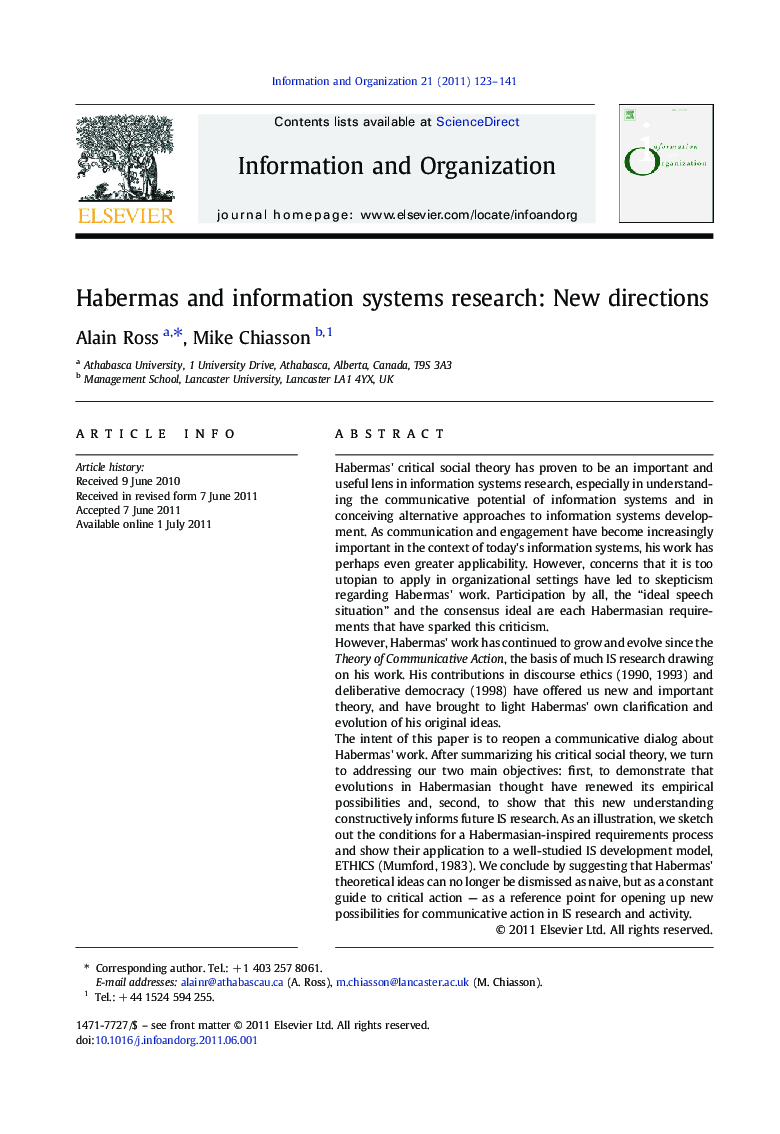| کد مقاله | کد نشریه | سال انتشار | مقاله انگلیسی | نسخه تمام متن |
|---|---|---|---|---|
| 554674 | 873854 | 2011 | 19 صفحه PDF | دانلود رایگان |

Habermas' critical social theory has proven to be an important and useful lens in information systems research, especially in understanding the communicative potential of information systems and in conceiving alternative approaches to information systems development. As communication and engagement have become increasingly important in the context of today's information systems, his work has perhaps even greater applicability. However, concerns that it is too utopian to apply in organizational settings have led to skepticism regarding Habermas' work. Participation by all, the “ideal speech situation” and the consensus ideal are each Habermasian requirements that have sparked this criticism.However, Habermas' work has continued to grow and evolve since the Theory of Communicative Action, the basis of much IS research drawing on his work. His contributions in discourse ethics (1990, 1993) and deliberative democracy (1998) have offered us new and important theory, and have brought to light Habermas' own clarification and evolution of his original ideas.The intent of this paper is to reopen a communicative dialog about Habermas' work. After summarizing his critical social theory, we turn to addressing our two main objectives: first, to demonstrate that evolutions in Habermasian thought have renewed its empirical possibilities and, second, to show that this new understanding constructively informs future IS research. As an illustration, we sketch out the conditions for a Habermasian-inspired requirements process and show their application to a well-studied IS development model, ETHICS (Mumford, 1983). We conclude by suggesting that Habermas' theoretical ideas can no longer be dismissed as naive, but as a constant guide to critical action — as a reference point for opening up new possibilities for communicative action in IS research and activity.
Research Highlights
► We explore the evolution in Habermas' work since the Theory of Communicative Action.
► We discuss and explore its renewed empirical possibilities for IS research.
► Conditions for a Habermasian-inspired requirements process are offered.
► Habermasian theory remains utopian but open to empirical application.
Journal: Information and Organization - Volume 21, Issue 3, November 2011, Pages 123–141